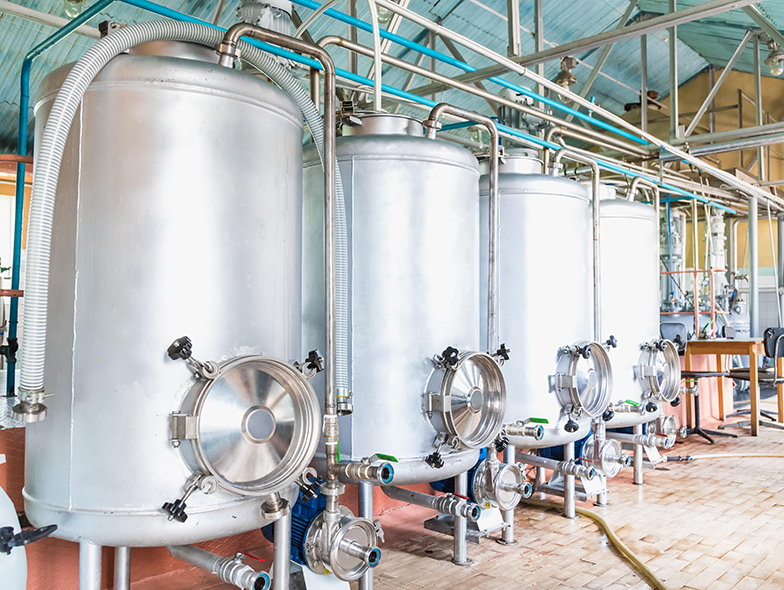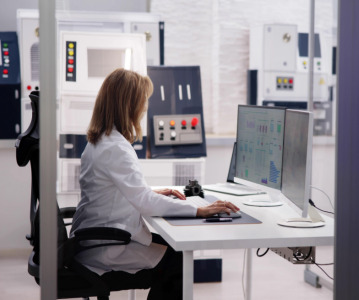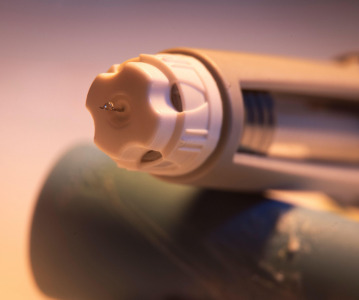Jetting emerges as greener, more efficient alternative in resin manufacturing

Purolite discusses its decision to switch from batch emulsification to Jetting technology
The life sciences industry has witnessed significant change in the last few years, most notably during the COVID-19 pandemic. Global lockdowns forced companies to accelerate digitisation, expand access to remote healthcare solutions and, most importantly, shorten the timeline for the development of life-saving vaccines.
However, not all areas have experienced such rapid advancement. Change has been slow to take hold in manufacturing, with many companies taking an ‘if it ain’t broke, don’t fix it’ approach. The cost of overhauling manufacturing processes and potential requirements around regulatory reapproval are also known barriers.
Nonetheless, innovation in manufacturing technology is occurring in some areas. Purolite, a leading manufacturer of resins used in the bioprocessing industry, serves as a prime example.
CPHI sat down with Fred Ghanem, Purolite’s Business Development Director, during CPHI North America to discuss the company’s shift to Jetting technology and how this relates to future expansion plans.
According to Ghanem, Purolite originally introduced Jetting due to the promise of improved efficiency and capacity. Purolite describes this technology as ‘a patented, industry-changing method that produces agarose beads with a very narrow particle size distribution.’ This means the company can manufacture exact particle sizes, which has unique performance benefits in chromatography processes.
Historically, most agarose resins have been produced using a process called batch emulsification. Batch emulsification produces wide particle size distributions, even after extensive sieving, making column packing reproducibility more challenging and reducing both pressure flow and resolution. From a manufacturing perspective, it is also time-consuming, labour-intensive, and more environmentally harmful.
Jetting provides an environmentally friendly alternative as it produces less solid waste and requires significantly lower volumes of water and solvents.
‘Because you're making the product to the exact particle size that you need, you no longer have to screen and throw away about 40% of your batch,’ Ghanem said, referencing the fact that batch emulsification produces yields as low as 35%.
‘We decided that rather than having the Jetted product as just an improved product line, we would use Jetting for all of our Praesto resins.’
Ghanem noted that while Jetting is common in the food and water treatment industries, its applications in pharmaceuticals have been limited.
‘The pharmaceutical industry has been slow to adapt,’ he said. ‘But at Purolite we've taken it upon ourselves to try to raise the profile of this technology, because that is the future.’
In late 2020, the company announced plans to construct a new 74,000 square foot facility near the company’s headquarters in King of Prussia, Pennsylvania. The new facility will include two new cleanrooms to manufacture APIs and excipients, as well as an agarose manufacturing facility equipped with Jetting technology for the capture and purification of (mAbs) monoclonal antibodies sold under the Praesto® brand.
According to Ghanem, the building is scheduled for completion very soon. On average, it takes 6-12 months to install such a facility when the building is already in place, compared to three years for a batch emulsification facility. Ghanem says this level of agility supports the company’s goal of having multiple manufacturing facilities spread across the world.
Purolite was acquired by Ecolab last year in a deal worth $3.7 billion. Ghanem says this has placed the company on a ‘fast track’ and increased access to new investments. With the completion of its King of Prussia facility, it will be the only supplier with the capabilities to produce bioprocess agarose resins across two independent continents.
Related News
-
News On Track at Pharmapack 2024 - The Track Sponsor interview: BD Pharmaceuticals
January 2024 brings both a new year and Europe’s leading packaging and drug delivery event. Bringing the world’s experts in pharmaceutical packaging together in Paris, France, Pharmapack 2024 brings exciting opportunities to learn and colla... -
News Patients vs Pharma – who will the Inflation Reduction Act affect the most?
The Inflation Reduction Act brought in by the Biden administration in 2022 aims to give better and more equitable access to healthcare in the USA. However, pharma companies are now concerned about the other potential costs of such legislation. -
News Roche breaks into the obesity drug market with the acquisition of Carmot Therapeutics
In a bid to diversify their therapeutic offerings, Roche takes over Carmot Therapeutics in $2.7 billion deal, with one obesity drug spearheading the venture into the field as they prep for a Phase II in-human trial. -
News Biden backs Cold-War measures to shore-up medical supply chains
In a recent strategy to combat rising inflation and the cost of living crisis, President Joe Biden has invoked a Cold War-era act to increase investment in a selection of medicines and supplies. -
News Women in Pharma: Delivering solutions for gender diversity
In our new monthly series, we interview women from across the pharmaceutical industry and supply chain to discuss the importance of gender diversity in healthcare, the workplace, and beyond. -
News CPHI Barcelona Speaker Interview – What the US FDA’s Quality Management Maturity Means for the Pharma Industry
At CPHI Barcelona (24–26 October, 2023), we spoke to Sireesha Yadlapalli, CEO of Pharmatech Associates, who gave a presentation on the implications of the US FDA’s Quality Management Maturity (QMM) Initiative, and spoke on the panel of the ... -
News CPHI Podcast Series: What does the changing US Pharma market mean for industry and patients alike?
In this week's episode of the CPHI Podcast Series Lucy Chard, Digital Editor for CPHI Online is joined by James Manser to discuss the political and market changes in the US pharma field. -
News Wegovy and weight-loss drugs driving demand for manufacturers that can fill syringes
Injectable weight-loss treatments are prompting contract manufacturers to invest and include fill-finish services into their service portfolios, in a bid to attract pharmaceutical giants developing drugs similar to Novo Nordisk's Wegovy.
Position your company at the heart of the global Pharma industry with a CPHI Online membership
-
Your products and solutions visible to thousands of visitors within the largest Pharma marketplace
-
Generate high-quality, engaged leads for your business, all year round
-
Promote your business as the industry’s thought-leader by hosting your reports, brochures and videos within your profile
-
Your company’s profile boosted at all participating CPHI events
-
An easy-to-use platform with a detailed dashboard showing your leads and performance
.png)




.png)

